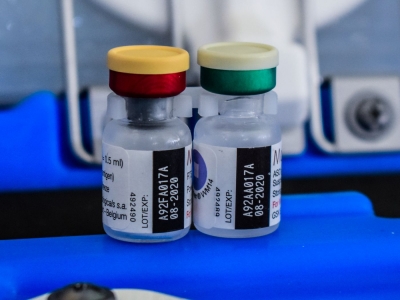World finally gets a malaria vaccine

October 6, 2021, marks a historic day in humanity's fight against malaria, as the WHO approved the rollout of the malaria vaccine. RTS,S/AS01 also known as Mosquirix among children living in sub-Saharan Africa and other at-risk regions. Though the vaccine protects against only 30% of infections, its rollout is a breakthrough, because developing a vaccine against complex malaria parasite is a herculean task.
Mosquirix was developed by British drug manufacturer GlaxoSmithKline in collaboration with health non-profit PATH and a network of African research centres, with partial funding from the Bill and Melinda Gates Foundation. The vaccine is the result of 30 years of research and it targets Plasmodium falciparum, the most common parasite causing malaria in Africa. The vaccine offers no protection against the other four species such as P vivax, P ovale, P knowlesi and P malariae which are prevalent in Southeast Asia, Americas and Europe.
Countries will need to take individual decisions on whether to introduce the vaccine or not and also work out funding arrangements on their own.
The WHO recommends the use of RTS,S for the prevention of Plasmodium falciparum malaria in children living in regions with moderate to high transmission as defined by the global health body.
“RTS,S/AS01 malaria vaccine should be provided in a schedule of 4 doses in children from 5 months of age for the reduction of malaria disease and burden,” the WHO said.
According to its estimates, more than 260,000 African children under the age of five die from malaria annually. That is why WHO Director General Tedros Adhanom Ghebreyesus described the approval of the vaccine as a “historic” development.
“This is a historic moment. The long-awaited malaria vaccine for children is a breakthrough for science, child health and malaria control. Using this vaccine on top of existing tools to prevent malaria could save tens of thousands of young lives each year,” he said in a statement.
Credit : The Print
Picture Credit : Google
